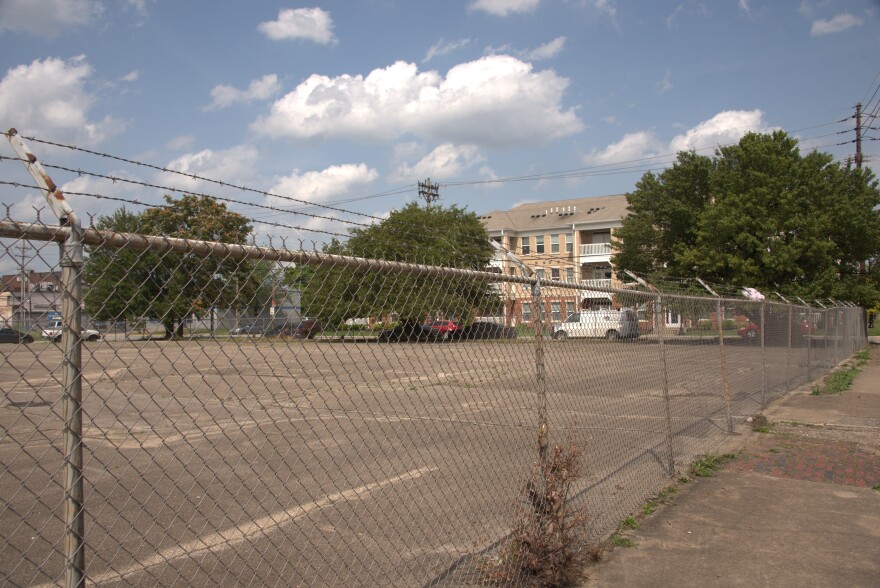89.3 WFPL News Louisville · Local housing leader Kevin Dunlap discusses the push for community land trusts
In June, the Community Foundation of Louisville awarded an acre of a vacant Smoketown lot to the local housing nonprofit Rebuilding Our Urban Neighborhood Dwellings, commonly known as REBOUND, Inc. The group says it will maintain the property until residents form a community land trust to use it.
REBOUND, Inc. is one of several organizations working in the Russell and Smoketown neighborhoods to promote community land trusts. As nonprofits formed by local members, CLTs can purchase land and provide long-term home leases to tenants. Through strategies like eliminating land value from housing prices, they can maintain home affordability and combat the displacement of long-time residents.
WFPL’s Jacob Munoz spoke with REBOUND executive director Kevin Dunlap about the initiative. This interview has been edited for clarity and brevity.
Can you tell me a little bit about the founding of REBOUND?
So, REBOUND was actually founded back in 1993. The goal of REBOUND at the time was to create affordable housing primarily in the Russell neighborhood, because in that neighborhood there had not been a brand new house built in over 50 years. But more recently, it is not only doing acquisition and rehab, but it's gotten back into doing single-family housing and new construction, and moving into acquiring and rehabbing affordable rental units as well.
I want to know a little bit about how this idea for the community land trust came about, and the ways in which REBOUND has had a part in trying to bring this to life.
The city had released the redlining project, where it talked about how west Louisville, and particularly African Americans, had been disenfranchised, and what are some of those things that can be done to alleviate that. The other thing we had recognized is that several neighborhoods had started to gentrify, racially. And as a result, one of the tools that other communities across the country have used is community land trusts. And that's having a land trust to acquire property, renovate the properties, build on those properties. And the community land trust has the ability to keep those units affordable for a period of up to 100 years.
And I always want to let people know that REBOUND in and of itself as an organization, we're not the ones creating the community land trust, we're facilitating the creation. And community land trusts historically come about as a result of the people within the neighborhood.
How [do] REBOUND and any other organizations use the funding that they've gotten, [and] use the land that they've had gifted to them in Smoketown?
So the way that it's working right now is that the engagement at the ground level is still taking place: trying to go door to door, getting people engaged.
You know, I was so glad that the Community Foundation of Louisville was able to deed an acre of land in the Smoketown neighborhood to REBOUND. We just wanted to hold it to make sure that it did not fall in the hands of another investor and someone outside of the neighborhood. Our goal is that once the community land trust in the neighborhood is actually formed between the residents there, we would then convey that land over to them to make the decision as to how they want to develop it.
Is there a sort of goal that you have in terms of like, working towards building a network of properties, where you can then go to residents in those neighborhoods and help facilitate the development of more community land trusts?
One of my goals right now is, first of all, working to facilitate the creation of the community land trusts. Get ’em up, get ’em started. But in the meantime, while that's taking place, I am looking to acquire properties in both of these neighborhoods to hold, so that they can have something to develop once they are in place.
My goal is that the two neighborhoods will begin to talk to each other and create one community land trust that represents both neighborhoods. I think in the long term, that may be a better strategy because you won't have two community land trusts competing against each other for resources. So you know, that's my personal goal. But again, you know, those decisions have to be left up to the residents within those neighborhoods.



